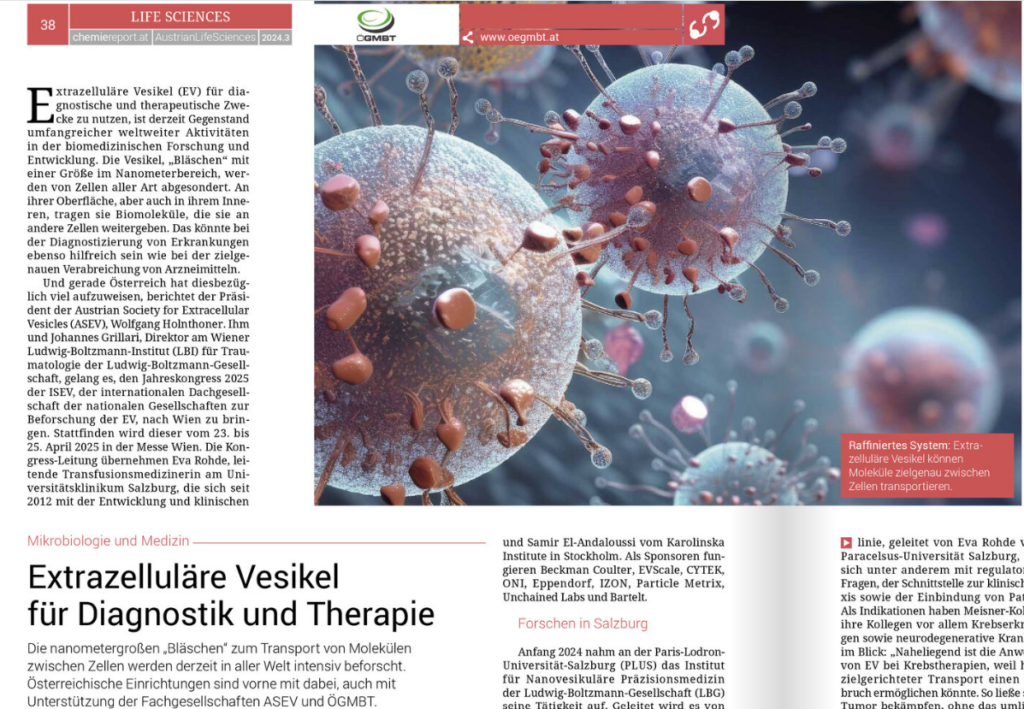Austria is setting new standards in research into extracellular vesicles (EVs). These tiny vesicles, which are released by cells, play a crucial role in cell communication and provide valuable information about the condition of organs. A recent article published in Chemiereport highlights the advances in EV research, in which LBI Trauma scientist Wolfgang Holnthoner plays a central role.
EVs form an endogenous transport system that orchestrates the transport of molecules between cells in our body. By assessing or even utilising this transport process, EV research holds great potential for the development of new diagnostic and therapeutic procedures. EVs can be used to recognise early signs of disease or to transport specific therapeutic substances. Numerous research institutions in Austria are working on this topic. If you want to stay up to date and make new contacts, you can do so via the ASEV, the Austrian Society for Extracellular Vesicles. Its president and mouthpiece, Wolfgang Holnthoner, is head of vascular biology research at the LBI Trauma.

Together with institute director Johannes Grillari, Wolfgang Holnthoner succeeded in bringing the annual congress of ISEV, the International Society for Extracellular Vesicles, to Austria. As an annual highlight of EV research, the conference attracts hundreds of participants from all over the world. The last congress, held in Australia in 2024, attracted over 1000 visitors. Based on the rapid growth of the field and Vienna’s central location in the middle of Europe’s active research scene, 1500 visitors are expected in 2025. The event will take place from 23 to 25 April at Messe Wien. Eva Rohde, transfusion physician at the PMU Salzburg, and Eva-Maria Krämer-Albers, neuroscientist at the Gutenberg University Mainz, will chair the congress. Further information on ISEV 2025 will be published shortly on the ISEV Annual Meetings website.
As a small foretaste, the joint annual congress of ASEV and CzeSEV will take place on 16 and 17 September at the Medical University of Vienna with around 150 participants from Austria and the Czech Republic.
The complete article in Chemiereport can be found online: Extracellular vesicles for diagnostics and therapy.